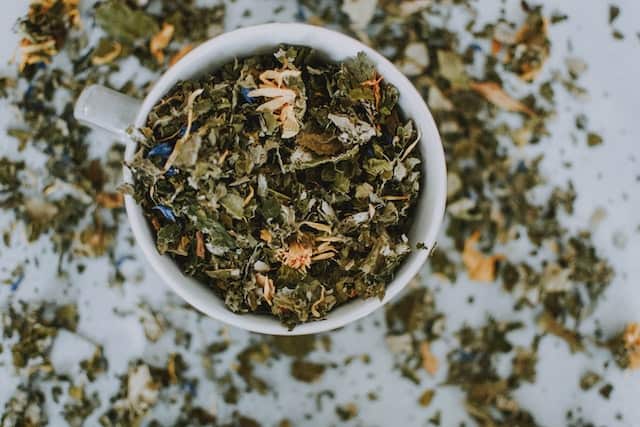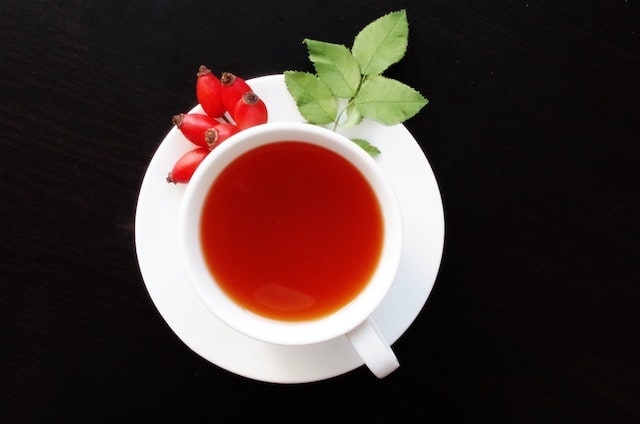Mother’s milk tea is a popular herbal blend that is often used by breastfeeding mothers to increase milk production. The tea is made from a combination of herbs, including fenugreek, fennel, and blessed thistle, which are believed to stimulate milk production.
While many women have reported positive results from drinking mother’s milk tea, others have experienced side effects that range from mild to severe.
Some of the most commonly reported side effects of mother’s milk tea include gastrointestinal issues such as nausea, vomiting, and diarrhea. Other women have reported experiencing headaches, dizziness, and a drop in blood sugar levels after drinking the tea.
While these side effects are generally mild and go away on their own, some women may experience more serious side effects that require medical attention.
Key Takeaways
- Mother’s milk tea is a popular herbal blend that is often used by breastfeeding mothers to increase milk production.
- Some of the most commonly reported side effects of mother’s milk tea include gastrointestinal issues, headaches, and dizziness.
- While many women have reported positive results from drinking mother’s milk tea, others have experienced side effects that range from mild to severe.
Understanding Mother’s Milk Tea

Mother’s milk tea, also known as lactation tea or herbal tea, is a popular drink among breastfeeding mothers. It is believed to help increase milk production and improve lactation. The tea is made from a combination of herbs, spices, and other natural ingredients that are known to have lactogenic properties.
One of the most common brands of mother’s milk tea is Traditional Medicinals, which is widely available in health food stores and online. The tea contains a blend of herbs that are believed to stimulate milk production, including fenugreek, fennel, anise, and blessed thistle.
Other ingredients may include coriander, mint, sage, nettle, lemon verbena, fennel seeds, anise seeds, alfalfa, raspberry leaf, marshmallow root, and licorice flavor.
While mother’s milk tea is generally considered safe for most women, there are some potential side effects to be aware of. Some women may experience gastrointestinal upset, including nausea, vomiting, and diarrhea. Others may develop allergic reactions to one or more of the ingredients in the tea.
It is important to note that the effectiveness of mother’s milk tea in increasing milk production has not been scientifically proven. While some women may experience an increase in milk supply after drinking the tea, others may not see any difference.
It is always best to consult with a healthcare provider before starting any new supplement or herbal remedy, especially while breastfeeding.
Overall, mother’s milk tea can be a helpful tool for some breastfeeding mothers who are struggling with milk production. However, it is important to use caution and be aware of potential side effects.
Role in Breastfeeding and Lactation
Mother’s milk tea is a herbal tea blend that is often marketed as a natural way to increase breast milk supply in nursing mothers. The tea is made with a combination of herbs that have been traditionally used as galactagogues, substances that promote lactation.
Breastfeeding is the most natural and beneficial way to feed an infant, providing all the necessary nutrients for growth and development. Breast milk production is regulated by the hormone prolactin, which is produced by the pituitary gland.
Prolactin levels increase during pregnancy and remain high while breastfeeding, stimulating milk production.
While there is limited scientific evidence to support the use of mother’s milk tea to increase milk supply, some studies suggest that certain herbs in the tea may have galactagogue properties. For example, fenugreek, one of the most commonly used herbs in mother’s milk tea, has been shown to increase milk production in nursing mothers.
However, it is important to note that not all women will experience an increase in milk supply from drinking mother’s milk tea. In some cases, the tea may have little to no effect on milk production. Additionally, the tea may cause side effects in some women, such as gastrointestinal upset or allergic reactions.
Overall, while mother’s milk tea may have some potential benefits for breastfeeding mothers, it is important to consult with a healthcare provider before using any herbal remedies to increase milk supply. Healthcare providers can help determine if mother’s milk tea is appropriate for an individual’s specific needs and can provide guidance on safe and effective methods for increasing milk production.
Potential Benefits of Mother’s Milk Tea
Mother’s milk tea is a popular herbal tea that is often consumed by breastfeeding mothers. It is believed to have several potential benefits, including:
1. Increased Milk Production
One of the primary benefits of mother’s milk tea is that it may help to increase milk production in breastfeeding mothers. The tea contains a blend of herbs that are believed to stimulate the production of prolactin, a hormone that is responsible for milk production.
2. Relaxation
Mother’s milk tea may also help to promote relaxation and reduce stress in breastfeeding mothers. The tea contains herbs such as chamomile and lavender, which are known for their calming properties.
3. Postpartum Support
Mother’s milk tea may also provide support for women during the postpartum period. The tea contains herbs such as nettle and red raspberry leaf, which are believed to help support the body during this time.
4. Vegan-Friendly
Mother’s milk tea is often vegan-friendly, making it a great option for those who follow a plant-based diet. The tea is typically made with a blend of herbs that do not contain any animal products.
Overall, mother’s milk tea may have several potential benefits for breastfeeding mothers. However, it is important to note that more research is needed to fully understand the effects of this tea. As with any herbal supplement, it is recommended that individuals speak with their healthcare provider before consuming mother’s milk tea.
Possible Side Effects
Mother’s milk tea is generally considered safe for consumption, but there are some possible side effects that should be taken into consideration.
1. Gastrointestinal Issues
Some people may experience gastrointestinal issues such as diarrhea, upset stomach, or colic after consuming mother’s milk tea. This may be due to the herbs used in the tea or the caffeine content. It is important to note that these side effects are typically mild and go away on their own.
2. Allergic Reactions
In rare cases, people may experience an allergic reaction to one or more of the herbs used in mother’s milk tea. Symptoms of an allergic reaction may include hives, itching, swelling, or difficulty breathing. If you experience any of these symptoms, stop drinking the tea and seek medical attention immediately.
3. Potential Side Effects
There are a few potential side effects of mother’s milk tea that are less common but still worth noting. These include:
- Headaches
- Insomnia
- Decreased appetite
If you experience any of these side effects, it is recommended to stop drinking the tea and consult with a healthcare professional.
It is important to note that the benefits of mother’s milk tea typically outweigh the potential side effects. However, it is always a good idea to speak with a healthcare professional before adding any new supplement or herbal tea to your diet.
Interactions with Other Medications and Herbs

It is important to note that Mother’s Milk Tea may interact with other medications and herbs. It is recommended to consult with a healthcare professional before consuming the tea if you are taking any medications or herbs.
1. Medications
Mother’s Milk Tea may interact with certain medications such as blood thinners, sedatives, and antidepressants. The tea contains compounds that can increase the effects of these medications and lead to adverse effects.
It is important to talk to a healthcare professional before consuming the tea if you are taking any of these medications.
2. Herbs
Mother’s Milk Tea contains several herbs that may interact with other herbs. For example, fenugreek, one of the main ingredients in the tea, may interact with herbs that have similar effects, such as fennel and anise. It is important to talk to a healthcare professional before consuming the tea if you are taking any other herbs.
3. Other Teas
Mother’s Milk Tea should not be consumed with other teas that have similar effects, such as green tea or black tea. The tea contains compounds that can interact with these teas and lead to adverse effects. It is recommended to consume Mother’s Milk Tea separately from other teas.
Overall, it is important to consult with a healthcare professional before consuming Mother’s Milk Tea if you are taking any medications or herbs. It is also recommended to consume the tea separately from other teas to avoid interactions.
Concerns and Precautions
While Mother’s Milk Tea is generally considered safe and effective for increasing milk supply, there are some concerns and precautions that should be taken.
It is important to consult with a healthcare provider or lactation consultant before using Mother’s Milk Tea, especially if you have a history of allergies or are taking any medications. Some ingredients in the tea, such as fenugreek, can interact with certain medications and may cause adverse effects.
Additionally, some women may experience side effects from drinking the tea, such as upset stomach, diarrhea, or allergic reactions. If you experience any of these symptoms, stop using the tea immediately and consult with a doctor.
It is also important to note that while Mother’s Milk Tea can help increase milk supply, it should not be relied on as the sole method of increasing milk production. It is important to maintain a healthy diet, stay hydrated, and nurse or pump frequently to ensure adequate milk supply.
Overall, while Mother’s Milk Tea can be a helpful tool for breastfeeding mothers, it is important to use it with caution and under the guidance of a healthcare provider or lactation consultant.
How to Use Mother’s Milk Tea
Mother’s milk tea is a popular herbal tea used to increase milk production in lactating women. However, it is important to use this tea responsibly to avoid any potential side effects. Here are some tips on how to use mother’s milk tea safely and effectively:
1. Dosage and Schedule
The recommended dosage of mother’s milk tea varies depending on the brand, but it is generally recommended to drink 1-3 cups per day. It is important to follow the instructions on the package and not to exceed the recommended dosage.
In terms of schedule, it is recommended to drink mother’s milk tea in between meals to avoid any interference with nutrient absorption. It is also important to note that the effects of mother’s milk tea may take a few days to become noticeable, so it is important to be patient and consistent with use.
2. Recipe and Sweetener
Mother’s milk tea can be made using pre-packaged tea bags or by brewing the herbs yourself. If brewing the herbs yourself, it is recommended to use one tablespoon of dried herbs per cup of water.
Some mothers may find the taste of mother’s milk tea to be bitter or unpleasant. In this case, it is okay to add a sweetener such as honey or sugar. However, it is important to avoid adding too much sweetener as this can lead to other health issues.
3. Pumping and Pumping Output
In addition to drinking mother’s milk tea, it is also important to maintain a regular pumping schedule to ensure adequate milk production. It is recommended to pump at least 8-12 times per day, including once or twice during the night.
It is also important to note that pumping output can vary depending on factors such as stress, hydration, and milk supply. While mother’s milk tea can help increase milk production, it is not a guarantee and should be used in conjunction with other lactation support methods.
Overall, mother’s milk tea can be a helpful tool for lactating mothers looking to increase their milk production. By following the recommended dosage and schedule, using the right recipe and sweetener, and maintaining a regular pumping schedule, mothers can safely and effectively use mother’s milk tea to support their breastfeeding journey.
Scientific Evidence and Anecdotal Reports
There is limited scientific evidence on the side effects of Mother’s Milk Tea. However, some studies have reported potential adverse effects of certain ingredients in the tea.
One study found that fenugreek, one of the main ingredients in Mother’s Milk Tea, may cause allergic reactions in some individuals. Another study reported that fenugreek may lower blood sugar levels and interact with diabetes medications.
Similarly, blessed thistle, another ingredient in the tea, has been associated with allergic reactions and gastrointestinal issues such as diarrhea and vomiting.
On the other hand, anecdotal reports suggest that Mother’s Milk Tea may have positive effects on lactation. Some mothers have reported an increase in milk production after consuming the tea.
However, it is important to note that anecdotal evidence is not a substitute for scientific evidence. Additionally, individual experiences may vary, and what works for one mother may not work for another.
Overall, more research is needed to fully understand the potential side effects and benefits of Mother’s Milk Tea. Mothers should consult with their healthcare provider before consuming the tea to ensure it is safe for them and their baby.
Effect on Hormones and Blood Sugar

Mother’s milk tea is often consumed by lactating mothers to increase milk production. However, it is important to note that the tea contains several herbs that may have an impact on hormones and blood sugar levels.
One of the herbs commonly found in mother’s milk tea is fenugreek. Fenugreek contains compounds that have been shown to increase estrogen levels in the body. While this may be beneficial for lactating mothers, it may not be ideal for individuals with certain medical conditions, such as breast cancer.
Another herb found in mother’s milk tea is fennel. Fennel contains phytoestrogens, which are plant compounds that mimic the effects of estrogen in the body. While phytoestrogens may have some health benefits, they may also have negative effects on individuals with hormone-sensitive conditions.
In addition to its effects on hormones, mother’s milk tea may also have an impact on blood sugar levels. Some of the herbs in the tea, such as fenugreek and blessed thistle, have been shown to lower blood sugar levels. While this may be beneficial for individuals with diabetes, it may also increase the risk of hypoglycemia in some individuals.
It is important to note that the effects of mother’s milk tea on hormones and blood sugar levels may vary depending on the individual. It is recommended that individuals with medical conditions or concerns speak with their healthcare provider before consuming mother’s milk tea.
Other Factors Influencing Milk Production
Besides the consumption of mother’s milk tea, there are several other factors that can influence milk production in lactating mothers. These factors include exercise, smoking, and stress.
Regular exercise can help increase milk production in lactating mothers. However, it is important to note that excessive exercise can have the opposite effect and decrease milk production. Therefore, lactating mothers should aim to engage in moderate exercise that is safe for both themselves and their baby.
Smoking has been found to decrease milk production in lactating mothers. Nicotine can also be transferred to the baby through breast milk, which can have harmful effects on the baby’s health. Therefore, it is recommended that lactating mothers avoid smoking altogether.
Stress can also have a negative impact on milk production in lactating mothers. High levels of stress can cause hormonal imbalances that can lead to a decrease in milk production. Therefore, lactating mothers should aim to reduce stress levels through relaxation techniques such as meditation or yoga.
It is important to note that the consumption of mother’s milk tea may not be the sole cause of any changes in milk production. Other factors such as those mentioned above can also play a role.
Therefore, it is recommended that lactating mothers consult with their healthcare provider before consuming mother’s milk tea or making any changes to their lifestyle that may affect milk production.
Is It Safe to Drink Mother’s Milk Tea Everyday?

Many breastfeeding mothers turn to Mother’s Milk Tea to help increase their milk supply. While this tea can be effective in boosting lactation, some women may wonder if it is safe to drink every day.
The ingredients in Mother’s Milk Tea are generally considered safe for consumption. However, drinking large amounts of the tea can lead to some unwanted side effects. For example, some women may experience stomach upset or diarrhea if they drink too much of the tea.
Additionally, some of the herbs in Mother’s Milk Tea can interact with certain medications. Women who are taking prescription medications should speak with their healthcare provider before drinking Mother’s Milk Tea on a regular basis.
Overall, it is generally safe for breastfeeding mothers to drink Mother’s Milk Tea in moderation. However, women should be mindful of their intake and watch for any negative side effects. If any adverse reactions occur, they should stop drinking the tea and speak with their healthcare provider.
Alternatives to Mother’s Milk Tea
For mothers who are looking for alternatives to Mother’s Milk Tea, there are a variety of options available. These include lactation teas, herbal teas, and milk dust.
1. Lactation Teas
Lactation teas are a popular alternative to Mother’s Milk Tea. They contain a blend of herbs that are believed to help increase milk production. Some popular lactation teas include:
- Traditional Medicinals Organic Mother’s Milk Tea
- Earth Mama Milkmaid Tea
- Pink Stork Lactation Tea
It is important to note that lactation teas should be consumed in moderation, as some herbs can have side effects or interact with medications.
2. Herbal Teas
Herbal teas can also be a good alternative to Mother’s Milk Tea. Some herbs that are believed to help increase milk production include:
- Fenugreek
- Fennel
- Blessed thistle
- Alfalfa
These herbs can be consumed in tea form, or in supplement form. It is important to speak with a healthcare provider before consuming any herbal supplements.
3. Milk Dust
Milk Dust is a protein powder supplement that is specifically designed for lactating mothers. It contains a blend of herbs and nutrients that are believed to help increase milk production. Some of the ingredients in Milk Dust include:
- Fenugreek
- Fennel
- Brewer’s yeast
- Flaxseed
Milk Dust can be added to smoothies or other beverages, and is a convenient alternative to tea.
Overall, there are a variety of alternatives to Mother’s Milk Tea available for mothers who are looking to increase their milk production. It is important to speak with a healthcare provider before consuming any supplements or herbs, and to consume them in moderation.
If you enjoyed this, you might want to check some tips on Can You Freeze Raw Milk
Frequently Asked Questions
What are the benefits of drinking lactation tea?
Lactation tea is believed to promote milk production in nursing mothers. It contains herbs such as fenugreek, fennel, and blessed thistle that have been traditionally used to increase milk supply. Additionally, lactation tea can be a relaxing and comforting ritual for new mothers.
How long does mothers milk tea stay in your system?
The active ingredients in lactation tea are typically metabolized and excreted within a few hours. However, individual factors such as metabolism and dosage may affect how long the tea stays in a mother’s system.
What are the possible side effects of mothers milk tea on a baby?
While lactation tea is generally considered safe for nursing mothers, some babies may experience side effects such as fussiness, gassiness, or diarrhea. It is important to monitor your baby’s reactions and speak with a healthcare provider if you have any concerns.
Can mothers milk tea cause headaches?
Headaches are not a common side effect of lactation tea. However, some people may be sensitive to the caffeine content in the tea and experience headaches as a result. If you experience headaches after drinking lactation tea, it may be helpful to switch to a decaf version.
Is mothers milk tea safe for pregnant women?
While lactation tea is generally safe for nursing mothers, it is not recommended for pregnant women. Some of the herbs in lactation tea, such as fenugreek and fennel, may have uterine-stimulating properties that could potentially cause contractions.
Can mothers milk tea cause gas in babies?
Some babies may experience gassiness after their mothers drink lactation tea. This is because the herbs in the tea can be passed through breast milk and may affect the baby’s digestion. If your baby is experiencing discomfort, it may be helpful to try reducing your intake of lactation tea or switching to a different brand.

Iesha is a loving mother of 2 beautiful children. She’s an active parent who enjoys indoor and outdoor adventures with her family. Her mission is to share practical and realistic parenting advice to help the parenting community becoming stronger.
